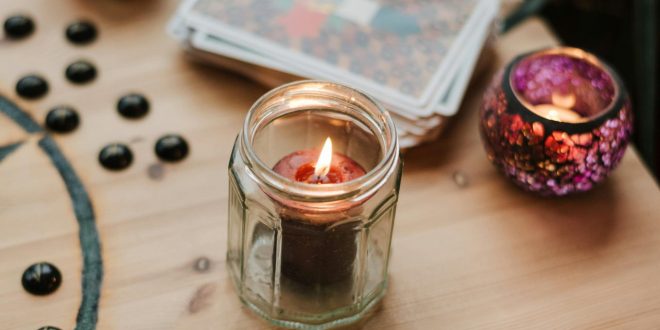Goddess Tarot Deck
As some readers will be aware, there are several Goddess Tarot decks and Oracle decks already available to buy. This may raise the question of the usefulness of another Goddess Tarot. So many are already appealing to those who want such decks.
We were eager to continue creating. And we wished to explore personally the Divine Feminine, having already explored the Divine Masculine. Thus, “Pistis Sophia: The Goddess Tarot” became a personal journey of spiritual integration and understanding for us. It was important to us that having spent several years immersed in the mythology of the Divine Masculine, we balanced ourselves with the other side of the coin.
The God Tarot
Secondly, we wish to offer to those who enjoyed “Sol Invictus: The God Tarot” a Goddess deck. It kept to the same structure, art style, and level of research. This, we hoped, would enable lovers of the God Tarot to have a more complete experience of balance and integration themselves.
Finally, it became clear to us that just because there are already several Goddess decks available doesn’t mean everybody who wants a Goddess deck will like them. Many of them won’t have an art style the reader likes, or will only have Goddesses assigned to the 22 Major Arcana instead of every card. Some Goddess decks are also aimed solely at women, excluding prospective male users immediately.
This leads directly to the former question: why another Goddess Tarot? We found that the Goddess decks already available were either overtly feminist, or anti-male, and made various false assumptions. They also didn’t appeal to hard polytheists. Many of them assumed that every reader believed in a Universal Goddess of whom individual Goddesses were merely a face.
The Goddess Tarot
Whilst, for convenience’s sake, we often use the term “Divine Feminine” in “Pistis Sophia: The Goddess Tarot”. We do not assume the above. Instead, we have strived to show each Goddess as powerful in her own right. She has her own unique story, symbols, worship, hymns, and appearance.
We also recognize that many of the Goddesses in this deck fit into archetypes that are repeated throughout mythology and history. We do not assume that this necessitates a view that they are all a Universal Goddess. Rather, we wish to view each Goddess as she was viewed by those who originally worshipped her. Or in the case of some Goddesses, by those who still worship her in living traditions.
As such, we have tried our best not to apply a worldview alien to the Goddesses in each card to our portrayal of them. We are not approaching them from a Jungian or Freudian perspective, nor a particular religious tradition’s perspective, and certainly not from the Frazerian mindset that still seems so popular despite its outdated and elitist attitudes towards what Frazer called “primitive” cultures.
Goddess Tarot Decks
The only mindset we have approached these Goddesses with is that of the Tarot – and that only so that we can apply the Tarot meanings to the Goddess myths, and not reshape the Goddess myths to fit our agenda. Where possible, we return to the sources of the Goddesses we portray, using the original hymns and writings, as well as archaeological sources, as the basis for our imagery and commentary.
Unfortunately, we found too many Goddess decks were not scholarly enough in their approach to the deities they were working with. They did not go to source texts and archaeology for their information, but instead to secondary commentaries that often had an agenda to push (most often feminism or an anti-male stance.) This made a further study for any interested readers almost impossible. At worst, these decks demonstrated a complete lack of historical accuracy or respect for the culture and religion from which the Goddess in question came.
So, in “Pistis Sophia: The Goddess Tarot”, we reunite the Divine Feminine with academia. Also, we unite the intelligent mind when putting to the process of research. In many traditions of symbolism, it is the Divine Masculine that is associated with logic and clear thought. The Divine Feminine prevails in the creative, imaginative aspects of the mind.
Here, we hope to enable the imagination and creativity of the reader. We want to show them, through our research and in a logical and historically accurate way. We want them to see what these beautiful, terrible, often profound, sometimes confusing, colorful Goddesses are about.
 Sun Signs Everything Under The Sun!
Sun Signs Everything Under The Sun!
